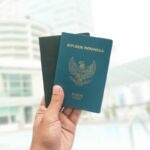Immigration, Refugees and Citizenship Canada (IRCC) has recently announced adjustments to application fees for foreign nationals seeking to regain their status or return to Canada after facing inadmissibility.
Increased Fees
The new fee structure, effective December 1st, 2023, reflects changes across various application categories including applications for authorization to return to Canada, criminal rehabilitation, restoration of status as a visitor, worker or student, and temporary resident permits.
| Application | Current Fee | New Fee (Dec 1, 2023) |
|---|---|---|
| Authorization to Return to Canada | $400.00 | $459.55 |
| Rehabilitation – Inadmissible (Criminality) | $200.00 | $229.77 |
| Rehabilitation – Inadmissible (Serious Criminality) | $1,000.00 | $1,148.87 |
| Restore Status as Visitor, Worker, or Student | $200.00 | $229.77 |
| Restore Status as Worker with New Work Permit | $355.00 | $384.77 |
| Restore Status as a Student with a New Study Permit | $350.00 | $379.77 |
| Temporary Resident Permit | $200.00 | $229.77 |
Reasons for the Fee Increase
These fees are being adjusted for inflation in accordance with the Service Fees Act (SFA). The fees were last adjusted in 2018 and will continue to be reviewed annually on December 1st.
Partial Refunds
As part of the SFA, IRCC offers partial refunds if its service standards are not met. These partial refunds, known as remissions, will be issued to applicants whose applications are received on or after December 1st, 2023. Remissions are typically issued by July 1st of the following fiscal year.
Also Read: Canada Plans to Welcome 485,000 New Permanent Residents in 2024
Overcoming Inadmissibility to Canada
Canada’s admissibility requirements ensure that foreign nationals meet certain standards before entering the country, including passing a criminal background check.
If you have been arrested or convicted of a criminal offence, you may be considered inadmissible to Canada. However, there are ways to overcome inadmissibility:
1. Temporary Resident Permit (TRP)
A TRP grants temporary entry to Canada for a specific period. It is used when a foreign national has a valid reason for entry and the benefits outweigh any risks. TRPs can be granted for up to three years and can be applied for at any time.
2. Criminal Rehabilitation
This permanently clears past criminal history for immigration purposes. It is a one-time solution and does not require renewal.
To be eligible, you must have committed an act outside Canada equivalent to a Canadian offence, been convicted or admitted to the act, and have had five years passed since completing your sentence.
3. Legal Opinion Letter
This letter, drafted by an immigration lawyer, explains the immigration consequences of a conviction. It cites relevant laws to help officials determine how charges and outcomes affect your ability to enter Canada.
Also Read: Canada Plans to Fast-Track Processing of Certain Visitor Visas
Conclusion
Navigating changes in application fees and understanding the avenues to overcome inadmissibility is crucial for foreign nationals seeking entry or a change in status in Canada. Staying informed and exploring the appropriate pathways can streamline the application process and enhance the chances of a successful outcome.
Follow and connect with us on Facebook, Twitter, LinkedIn, Instagram and Google News for the latest travel news and updates!





